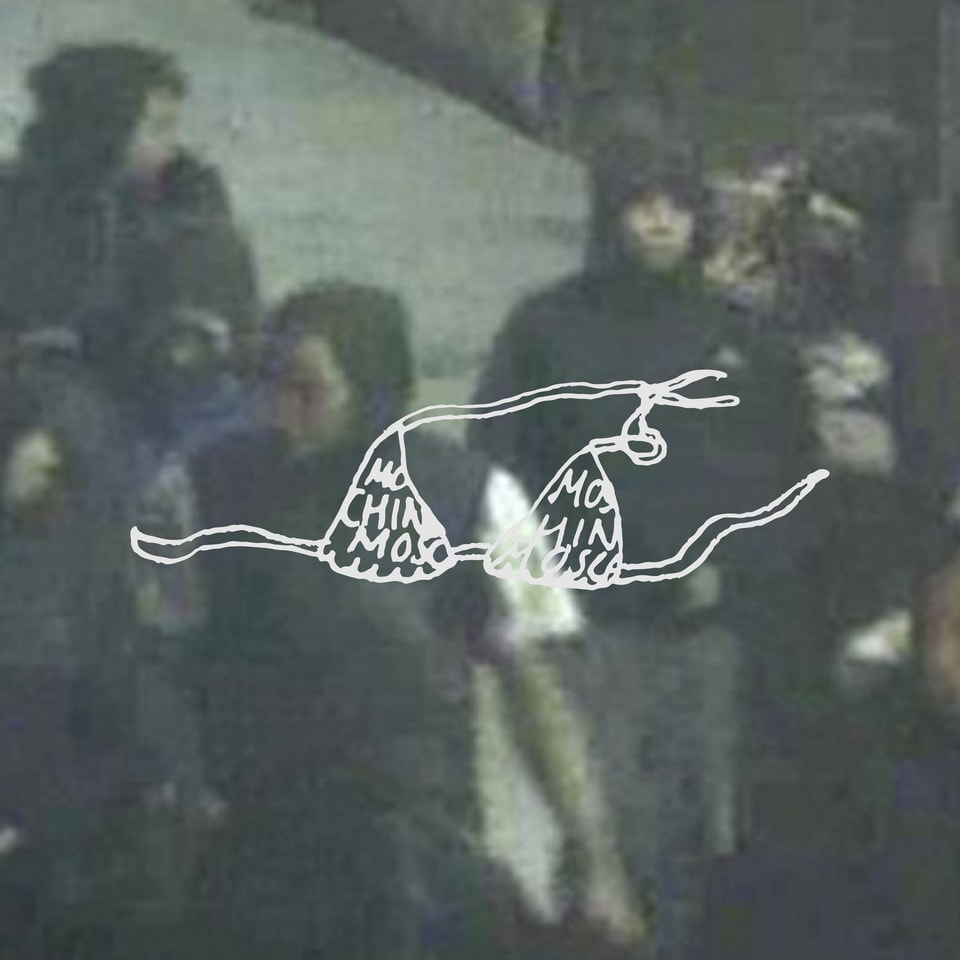Stephanie Gavan is a writer from Liverpool with a background in contemporary art. She writes about cities, subcultures, magic, art, and everything in between. She's had many past lives: as a dirty, wayward girl, a crybaby painter, as co-editor of feminist zine Queen of the Track, and a school teacher in Venice. She's hoping her next one will be as Bjork's TV. She shares a birthday with both Franz Kafka and Pamela Anderson and spends a disproportionate amount of time musing over their hypothetical offspring. Her work has featured in Dazed, The Quietus, Montez Press Radio, Corridor8 and The Double Negative, among others. She is currently writing her first essay collection 0151: Essays in Scouse Phenomenology.
Stephanie Gavan


My work resides in potholes, at bus stops, in the bend of soggy cigarette butts, up between that cracked pipe that keeps spitting into the alley. Do say hello if you’re passing–I’ll be there, somewhere, choking half to death on a garden gnome for the sake of a good story.
During my MA, I’ve written about hackers and high streets, mystics and popstars. I’ve produced radio shows on the thrills of mutation, interviewed a Turner-prize winner about mischievous fairies and participated in some dirty collaborations. Here you’ll find some of these stories; there’s one about Alice running riot through Bolognese airwaves and another about the after-life and a telepathic Blondie record.
For my Final Major Project, I wrote about my home city of Liverpool, my relationship to it, and the cultural phenomena that constitute its specific identity. Stealing from various disciplines – memoir, analysis, psychogeography, social and oral history - this series of essays ask how we are affected by the places we call home. How do they come to shape who we are and how do we shape them in return?
When we talk about cities, what is it that we talk about? Geography, architecture, economics, politics – certainly, these things play a part in these essays, but I wanted to call upon the other, more ephemeral things that exist in these places, phenomena less clearly defined - memories, relationships, dreams, ghosts, time, style, desires and drives. These essays are a homecoming of sorts, a codex of customs, myths, fragments and symbols, a collapse into the city's infinite psychic states. They are also invitations. At a time when many people have left the soaring rents of London to return home during the pandemic, I hope these essays will inspire people to reflect on the shifting grammars of their own cities, wherever they may be.
![[untitled]](https://res.cloudinary.com/rca2020/image/upload/f_auto,h_1080,w_1920,c_fill,g_auto,q_auto/v1/rca2021/60c49c1aa98c7847e545df83-711906?_a=AXAH4S10)
![[untitled]](https://res.cloudinary.com/rca2020/image/upload/f_auto,h_1920,w_1920,c_fill,g_auto,q_auto/v1/rca2021/60c49c1aa98c7847e545df83-116889?_a=AXAH4S10)
Medium:
FMP TextSize:
23,000
![[untitled]](https://res.cloudinary.com/rca2020/image/upload/f_auto,h_1314,w_1920,c_fill,g_auto,q_auto/v1/rca2021/60c4a224a98c7847e54b93f4-606087?_a=AXAH4S10)
![[untitled]](https://res.cloudinary.com/rca2020/image/upload/f_auto,h_1314,w_1920,c_fill,g_auto,q_auto/v1/rca2021/60c4a224a98c7847e54b93f4-184953?_a=AXAH4S10)
![[untitled]](https://res.cloudinary.com/rca2020/image/upload/f_auto,h_1314,w_1920,c_fill,g_auto,q_auto/v1/rca2021/60c4a224a98c7847e54b93f4-203172?_a=AXAH4S10)
![[untitled]](https://res.cloudinary.com/rca2020/image/upload/f_auto,h_1314,w_1920,c_fill,g_auto,q_auto/v1/rca2021/60c4a224a98c7847e54b93f4-215018?_a=AXAH4S10)
![[untitled]](https://res.cloudinary.com/rca2020/image/upload/f_auto,h_1240,w_1753,c_fill,g_auto,q_auto/v1/rca2021/60c4a224a98c7847e54b93f4-322827?_a=AXAH4S10)
Extract from Chapter One: Moschino Made Me Hardcore
Moschino Made me Hardcore is the first essay of the collection, it is concerned with style and desire. It looks at the self-referentiality of trends in the city, at aspirational and regional aesthetics, at inheritance, class, and taste. It considers the work of Mark Leckey, the football subculture of the Casuals, the WAG phenomenon of the noughties, and my personal and familial connection to clothes and luxury goods within the political and social context of Liverpool.
Medium:
TextSize:
10,000 words![[untitled]](https://res.cloudinary.com/rca2020/image/upload/f_auto,h_1314,w_1920,c_fill,g_auto,q_auto/v1/rca2021/60c5c80fa98c7847e5abfea1-270274?_a=AXAH4S10)
![[untitled]](https://res.cloudinary.com/rca2020/image/upload/f_auto,h_1314,w_1920,c_fill,g_auto,q_auto/v1/rca2021/60c5c80fa98c7847e5abfea1-454552?_a=AXAH4S10)
![[untitled]](https://res.cloudinary.com/rca2020/image/upload/f_auto,h_1314,w_1920,c_fill,g_auto,q_auto/v1/rca2021/60c5c80fa98c7847e5abfea1-466705?_a=AXAH4S10)
![[untitled]](https://res.cloudinary.com/rca2020/image/upload/f_auto,h_1314,w_1920,c_fill,g_auto,q_auto/v1/rca2021/60c5c80fa98c7847e5abfea1-490794?_a=AXAH4S10)
![[untitled]](https://res.cloudinary.com/rca2020/image/upload/f_auto,h_1314,w_1920,c_fill,g_auto,q_auto/v1/rca2021/60c5c80fa98c7847e5abfea1-502823?_a=AXAH4S10)
![[untitled]](https://res.cloudinary.com/rca2020/image/upload/f_auto,h_1358,w_1920,c_fill,g_auto,q_auto/v1/rca2021/60c5c80fa98c7847e5abfea1-493480?_a=AXAH4S10)
Extract from Chapter Two: Born Slippy
This essay looks at ruins, ghosts and time in the city, how these things are bound with corruption, decay, regeneration, urban planning, authenticity, time travel and memory. It contemplates the post-industrial landscape of the Liverpool Docks, the lost futures of Graeme Shankland’s utopian 1960s masterplan, the speculative architecture collective Superstudio, urban myths and artist interventions, drowned villages and Neolithic stones.
Medium:
FMP TextSize:
12,749![[untitled]](https://res.cloudinary.com/rca2020/image/upload/f_auto,h_1352,w_1920,c_fill,g_auto,q_auto/v1/rca2021/60c4a466a98c7847e54ddcdd-769477?_a=AXAH4S10)
![[untitled]](https://res.cloudinary.com/rca2020/image/upload/f_auto,h_1325,w_1920,c_fill,g_auto,q_auto/v1/rca2021/60c4a466a98c7847e54ddcdd-827071?_a=AXAH4S10)
![[untitled]](https://res.cloudinary.com/rca2020/image/upload/f_auto,h_1325,w_1920,c_fill,g_auto,q_auto/v1/rca2021/60c4a466a98c7847e54ddcdd-129070?_a=AXAH4S10)
An 'archaeological' act of criticism, this long-form essay re-examines the legacy of Radio Alice, a pirate radio station and radical communication experiment that took place in Bologna during the autonomous uprising of 1977. Using Lewis Carroll's 'Alice' as a character who jumps around within the text, I created a narrative framework from which to consider the broader concerns of Radio Alice, and why they still matter today.
Medium:
TextSize:
5700 words![[untitled]](https://res.cloudinary.com/rca2020/image/upload/f_auto,h_1440,w_1920,c_fill,g_auto,q_auto/v1/rca2021/60c5c357a98c7847e59fda96-419040?_a=AXAH4S10)
![[untitled]](https://res.cloudinary.com/rca2020/image/upload/f_auto,h_501,w_714,c_fill,g_auto,q_auto/v1/rca2021/60c5c357a98c7847e59fda96-495138?_a=AXAH4S10)
![[untitled]](https://res.cloudinary.com/rca2020/image/upload/f_auto,h_478,w_723,c_fill,g_auto,q_auto/v1/rca2021/60c5c357a98c7847e59fda96-895946?_a=AXAH4S10)
![[untitled]](https://res.cloudinary.com/rca2020/image/upload/f_auto,h_1440,w_1920,c_fill,g_auto,q_auto/v1/rca2021/60c5c357a98c7847e59fda96-524842?_a=AXAH4S10)
![[untitled]](https://res.cloudinary.com/rca2020/image/upload/f_auto,h_1440,w_1920,c_fill,g_auto,q_auto/v1/rca2021/60c5c357a98c7847e59fda96-936684?_a=AXAH4S10)
![[untitled]](https://res.cloudinary.com/rca2020/image/upload/f_auto,h_1355,w_1920,c_fill,g_auto,q_auto/v1/rca2021/60c5c357a98c7847e59fda96-969536?_a=AXAH4S10)
![[untitled]](https://res.cloudinary.com/rca2020/image/upload/f_auto,h_1209,w_1920,c_fill,g_auto,q_auto/v1/rca2021/60c5c357a98c7847e59fda96-982081?_a=AXAH4S10)
![[untitled]](https://res.cloudinary.com/rca2020/image/upload/f_auto,h_1440,w_1920,c_fill,g_auto,q_auto/v1/rca2021/60c5c357a98c7847e59fda96-58990?_a=AXAH4S10)
![[untitled]](https://res.cloudinary.com/rca2020/image/upload/f_auto,h_1440,w_1920,c_fill,g_auto,q_auto/v1/rca2021/60c5c357a98c7847e59fda96-143715?_a=AXAH4S10)
![[untitled]](https://res.cloudinary.com/rca2020/image/upload/f_auto,h_1431,w_1920,c_fill,g_auto,q_auto/v1/rca2021/60c5c357a98c7847e59fda96-20593?_a=AXAH4S10)
In February 2020, I interviewed artist and former Turner Prize winner Mark Leckey, about his Tate Britain retrospective ’Magic Power of Bleakness. The conversation focuses on themes of class, magic and sampling as method. This piece was later published by The Quietus in June 2020.
![[untitled]](https://res.cloudinary.com/rca2020/image/upload/f_auto,h_1417,w_1890,c_fill,g_auto,q_auto/v1/rca2021/60c60c3d101fec8c9f257db9-281904?_a=AXAH4S10)
![[untitled]](https://res.cloudinary.com/rca2020/image/upload/f_auto,h_2305,w_1920,c_fill,g_auto,q_auto/v1/rca2021/60c60c3d101fec8c9f257db9-160031?_a=AXAH4S10)
![[untitled]](https://res.cloudinary.com/rca2020/image/upload/f_auto,h_2305,w_1920,c_fill,g_auto,q_auto/v1/rca2021/60c60c3d101fec8c9f257db9-218382?_a=AXAH4S10)
![[untitled]](https://res.cloudinary.com/rca2020/image/upload/f_auto,h_2305,w_1920,c_fill,g_auto,q_auto/v1/rca2021/60c60c3d101fec8c9f257db9-229957?_a=AXAH4S10)
This text is a creative response to Jeremy Deller & Karl Holmqvist’s Now it is Allowable poster from the Swedenborg Society archives.
After discovering that Gary Lachman, the bassist for Blondie, is a practising Swedenborgian, I built the text around their song I'm Always Touched by Your Presence, Dear. Drawing upon Swedenborgian ideas of work, telepathy and the afterlife, the text weaves pop-cultural references with a narrative inspired by Swedenborg's spiritual teachings.